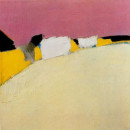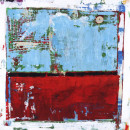Emotion in Poetry
This is the second in a series on Coleridge and poetry. In the first I looked at Coleridge’s well known definition of poetry as the fusion of an unusual degree of emotion with an unusual degree of form, and suggested that a. words in poetry have a value beyond that of conveying a simple meaning (i.e. operate like elements in a painting) and b. poems ‘worked’ by having their constituents operate in different ways, which we might call their ‘functionality’. Once again, this will be a rather discursive post where I put down the points as they come to me. Perhaps, if results warrant it, and I can find the time, I’ll organize this material into a little handbook on reading contemporary and other poetry, but for the present you have an example of ‘I wrote a long article...
Read MoreColeridge and Poetry
In his popular introduction to Horace (1), L.P. Wilkinson has the task of showing how, or to what extent, the more prosaic of Horace’s odes are still poetry. By and large, the Romans were a pragmatic and unimaginative people, and Horace’s qualities – meditation, restraint, balance, tact and urbanity – are not those commonly associated with higher flights of literary creation. Even the Greeks, who urged moderation in all things, gave pride of place to passion. ‘I would confidently maintain’, says Longinus, ‘that there is no tone so lofty as that of genuine passion in the right place, when it bursts out enthusiastically as though through some kind of madness and inspiration, and fills the spoken words with frenzy’. (2) But that passion had to be held in check, restrained by economy and a faultless control of the medium....
Read MoreThe Yale Review
What the oldest literary review in America is now publishing is the motive for this brief note on brief poems. Founded in 1819, the Yale Review is today under the editorship of the poet and literary critic J.D. McClatchy. It aims to give its distinguished authority to ‘bold established writers and promising newcomers, to both challenging literary work and a range of essays and reviews that can explore the connections between academic disciplines and the broader movements in American society, thought, and culture.’ Because back issues give only a contents listing of contributors (though many are well known) I can only comment on the current edition, which provides a reasonable selection of its poetry. Speculation and elegance (to again quote the quarterly’s aims) are prominent in the five pieces I present here. All are modest in intention and muted...
Read More4 Poets in Word Riot
Word Riot is an online literary magazine that features poetry, flash fiction, short stories, non-fiction and excerpts of novels. It was founded in 2002, and was followed a year later by the Word Riot Press, which publishes poetry collections, anthologies and novels. The website is not particularly attractive, but the contributors are all professionally presented, despite many being young, at college still or attending MFA courses. What an appreciable number of them do achieve in recent issues of Word Riot, however, is an enviable naturalness of expression: the work has not always great depth or emotional charge, but the voices are fresh, believable and unpretentious. Melissa Ho (whose Orange Acid and Other Admissions of Guilt can be read at: http://www.wordriot.org/archives/6761) is in fact only sixteen, but the work is strikingly original and difficult to classify exactly. I do not...
Read More



